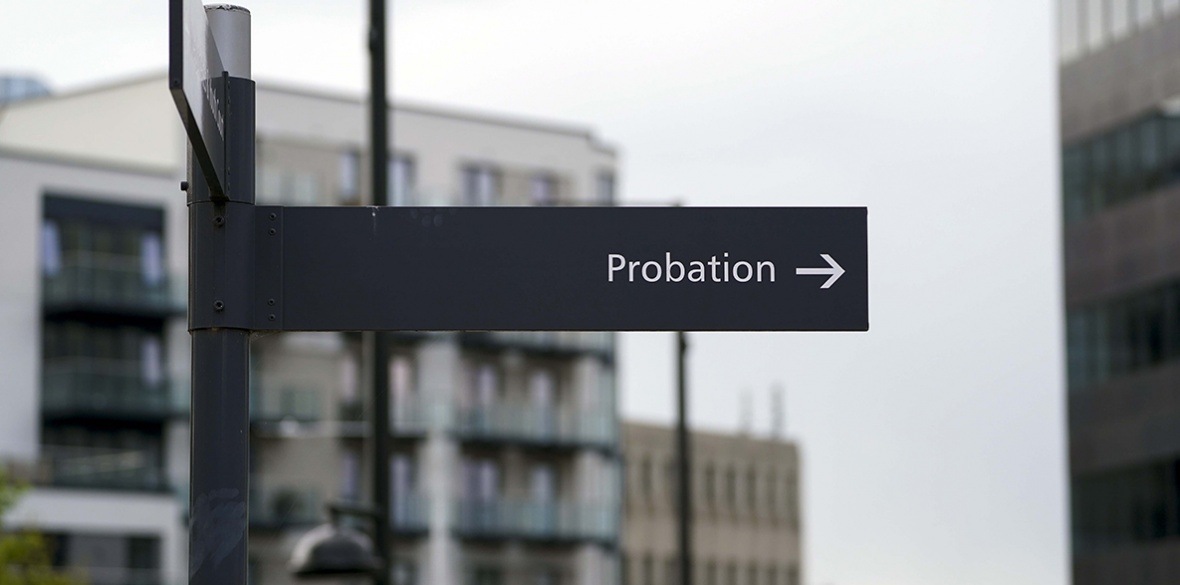This is the last article you can read this month
You can read 5 more article this month
You can read 5 more articles this month
Sorry your limit is up for this month
Please help support the Morning Star by subscribing here
PROBATION was accidentally nationalised and moved into the Civil Service as a consequence of the government’s failed Transforming Rehabilitation reforms in 2014.
The National Probation Service that was created at that time was markedly different to the service that had existed before, with the former probation trusts abolished despite all of them having performance assessed as “good” or “outstanding” and many having externally assessed excellence marks.
The cancelling of the CRC contracts in 2021 moved the final elements of probation work into the Civil Service and now all of the probation system exists in the Civil Service, either directly provided or in small contracts for specialist support services. This has been a disaster for the profession.
The move away from trusts that valued and supported the professionalism of their staff to the top-down command and control ethos of the Civil Service has stifled professionalism so much that there is now a move to “professionalise” probation staff.
The insult that this term brings to professionals who have struggled to deliver a service in the face of cuts to budgets and staffing and a disastrous and dangerous split in the system cannot be underestimated.
It is unlikely that the decision makers in the Ministry of Justice will ever hear the true voice of the profession however, as they are far removed from probation, a tiny part of the huge machine that delivers justice across England and Wales.
Now we are told that, in response to the announcement made by the outgoing prime minister about Civil Service job cuts, the Probation Service will be subsumed into HM Prison and Probation Service (HMPPS) and no longer exist with a separate framework to support it.
Early versions of the communications about this move promised that decisions would be based on evidence and data. It is not clear if these will make it into the final cut after Napo pointed out that this is the latest in a string of harmful decisions made on the basis of political whim rather than any evidence or data.
The probation system is markedly different to the prison system. That does not mean that either one is better or worse, they are simply different. The prison system works on strict rules, security and hierarchy. These are necessary for safety of staff and those in prison.
The probation system works on transparency and constantly questioning everything — including instructions and rules. Probation training encourages the professional to question the system in which they, and their client, exist and to seek to understand and explore issues relating to power and control in their working relationships.
This inevitably effects the way that those professionals respond to their own working relationships in their own supervision and management arrangements. Probation professionals should be expected to ask for evidence and data, to scrutinise the motivation for instructions and policy changes and above all to have an active voice in their own management.
For many years Napo has been warning that the move into HMPPS was a risk to the profession, and the “one HMPPS” programme is likely to realise our fears. Probation as a profession will be under threat due to the needs of our larger and more costly partner — the prisons.
Senior leaders will continue to struggle to make the voice of probation heard and, in order to survive, will adopt more of a command-and-control approach, discouraging questioning and becoming more remote.
The phrase “that’s not how Civil Service/HMPPS/prisons do it” will continue to be the stock response when those who retain probation values and approaches try to be heard. It is important to note that in all the work done since 2014 to rebuild probation in the Civil Service you never hear anyone say “that’s how probation do it.”
This is a great shame; there is much that our colleagues in the wider HMPPS and Civil Service could learn from the former probation trusts, those outstanding performers with externally verified excellence standards. If the Civil Service headcount needs to be reduced then Napo have the perfect solution which is “oven ready.”
It is: move the Probation Service out of the Civil Service into a non-departmental government body. Keep probation in the public sector but freed from prison and removed from the Civil Service. Give probation professionals the freedom to practice, give senior leaders the freedom to truly lead. Make the Probation Service locally accountable, enabling partnership working while retaining their unique culture and values.
Katie Lomas is former national chair of Napo and Ben Cockburn is national vice chair.









